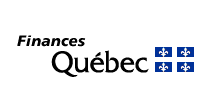|
Supplementary
Statement to the 2002-2003 Budget:
$300 million more for the fight against poverty
and targeted tax reductions averaging $222
for 780 000 households

Québec,
March 19, 2002 - The Supplementary Statement to the 2002-2003
Budget tabled today by Deputy Prime Minister and Minister
of State for the Economy and Finance Pauline Marois announces
an additional injection of more than $300 million over three
years to help fight poverty. A large share of this money will
go to the annual indexation of social assistance benefits
and enhancement of housing assistance for income support recipients.
"We want to ensure that inflation does not erode the
purchasing power of the most disadvantaged Quebecers, who
depend on the government's financial support, and that these
individuals are not penalized for sharing a dwelling or choosing
to live in lower-cost housing," the Minister said.
Ms.
Marois also announced improvements to the personal income
tax system that will mean average tax savings of $222 annually
for 780 000 households, beginning in 2003.
Automatic
annual indexation of social assistance benefits
Effective
January 1, 2003, the monthly benefit paid to all social assistance
recipients, whether they have a severely limited capacity
for employment or are able to work, will be automatically
indexed on January 1 of each year to offset the cost-of-living
increase. This measure will cost $156 million over the next
three fiscal years and benefit approximately 360 000 households.
Remember that the government increased social assistance benefits
by 2.7% on January 1, 2002.
Enhanced
social assistance for housing
In
addition, as of January 1, 2003, the government will eliminate
the penalty for sharing a dwelling, which will mean an increase
of up to $50 in the monthly benefit paid to over 60 000 households.
Effective the same date, the government will also eliminate
the reduction in the monthly benefit for social assistance
recipients whose lodging expenses are less than the minimum
cost under the program. These two changes represent a total
gain of $115 million for more than 80 000 households over
the next three fiscal years.
$40 million for community organizations
To
further support the activities of community organizations,
especially those that assist persons in need, the government
is allocating $40 million over the next two fiscal years to
the Policy on the Recognition and Support of Community Action,
adopted in July 2001. This is in addition to the $10 million
allocated during 2001-2002. This measure reaffirms the commitment
made by the government when the policy was adopted in July
2001 to inject $50 million over three years.
"If
you add the measures announced today to those introduced in
the 2001-2002 and 2002-2003 Budgets, you can see that the
government will have allocated nearly $1.4 billion to fight
poverty. This is a major effort and a collective gesture of
solidarity towards the most disadvantaged members of our society
and low-income households," Ms. Marois said.
Targeted
tax reductions averaging $222 for 780 000 households
To
meet the needs expressed by many Quebecers, the personal income
tax system is being improved to the benefit of families, middle-income
Quebecers and seniors. The changes, which take effect in 2003,
represent an average tax saving of $222 for 780 000 households.
Among the changes:
-
individuals will be able to transfer to their spouse the
unused portion of all of their non-refundable tax credits.
This change will be advantageous for more than 250 000 couples
in which one of the spouses has a lower income.
-
individuals will be able to take advantage of deductions
and credits without forgoing the benefits of the simplified
tax system. Examples include the deduction for support payments,
deductions for residents of remote areas and tax credits
for medical expenses.
$15
billion in income tax cuts over five fiscal years
"These
changes in favour of the middle class testify to our concern
for making the tax system fairer. As a reminder, the tax cuts
introduced in the 2000-2001 and 2001-2002 Budgets are equivalent
to a reduction of 20% in the income tax payable for 2002,
which represents an average saving of $1 410 per household.
Over the five years from 2000 to 2004, the government will
have granted taxpayers a total tax reduction of $15 billion.
These are the largest tax cuts in the history of modern Québec,
and there is no question that they have contributed to our
economic performance," the Minister affirmed.
-
30 -
Source:
Nicole Bastien
Press Officer
Office of the Deputy Prime Minister and
Minister of State for the Economy and Finance
Tel. (418) 643-5270 or (514) 873-5363
www.finances.gouv.qc.ca
Information:
Jacques Duval
Direction des communications
Ministère des Finances
Tel. (418) 691-2252
|


